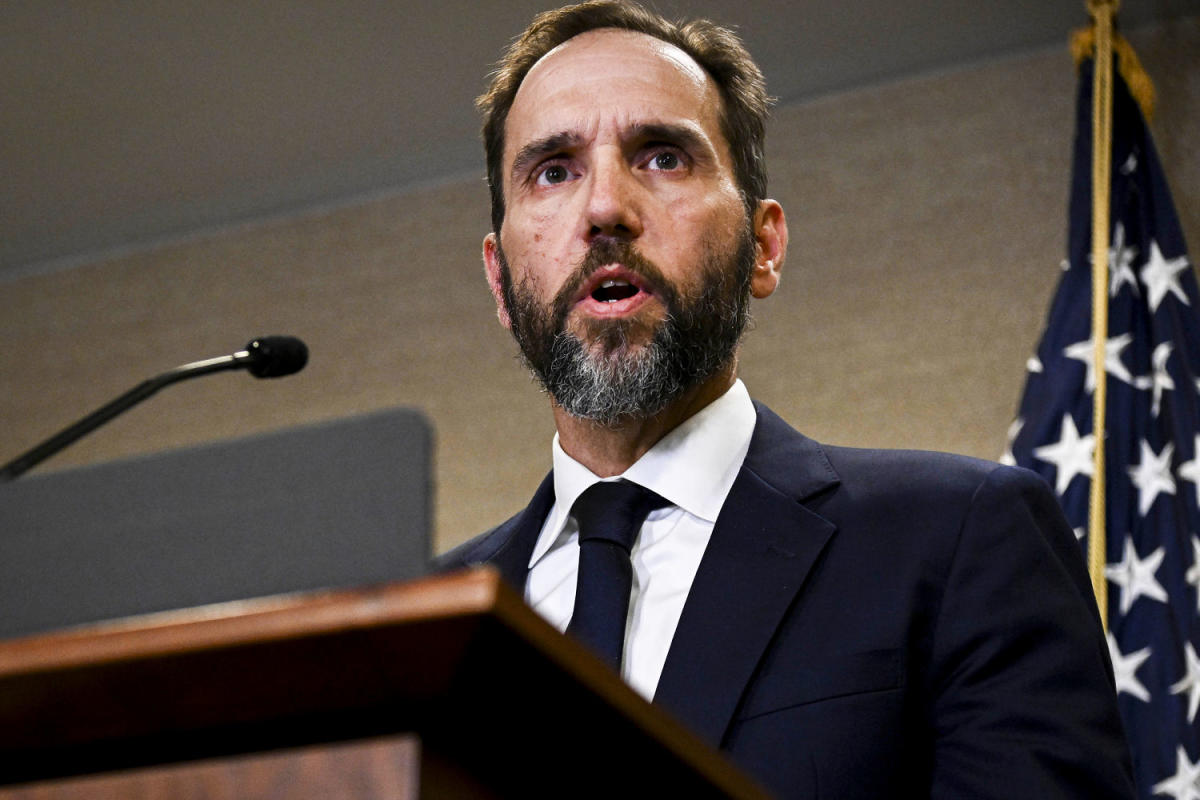The S&P 500 (SNPINDEX: ^GSPC) is a market capitalization-weighted index, which means the largest of its 500 constituents have a greater influence over its performance than the smallest. The index logged a 15% return through the first half of 2024, but a substantial portion of that came from a mere handful of large-cap technology stocks.
Nvidia, Microsoft, Apple, Amazon, and Meta Platforms account for over one-quarter of the entire value of the S&P 500, and combined they have returned an average of 49.7% in 2024 so far.
Simply put, investors who don’t own those stocks are probably underperforming the broader market — but that doesn’t mean they should pile into them right now. Instead, it might be better to buy one or two exchange-traded funds (ETFs) which are weighted toward the technology sector, because they can offer a more diversified way to ride the wave of high-growth trends like artificial intelligence (AI).
Here’s why investors sitting on idle cash might want to allocate $700 toward buying one share of the Vanguard Mega Cap Growth ETF (NYSEMKT: MGK), and one share of the Vanguard Growth ETF (NYSEMKT: VUG).
1. Vanguard Mega Cap Growth ETF
The Vanguard Mega Cap Growth ETF can give investors diversified exposure to the largest U.S. growth companies. It holds 78 different stocks from 10 different sectors including consumer discretionary, healthcare, industrials, and financials. But the technology sector dominates them all, accounting for 60% of the entire fund.
In fact, eight of the ETF’s top 10 holdings operate in the tech sector:
|
Rank/Stock |
Portfolio Weighting |
Rank/Stock |
Portfolio Weighting |
|---|---|---|---|
|
1. Microsoft |
14.43% |
6. Eli Lilly |
3.4% |
|
2. Apple |
13.14% |
7. Alphabet Class A |
3.05% |
|
3. Nvidia |
12.08% |
8. Alphabet Class C |
2.52% |
|
4. Amazon |
7.61% |
9. Tesla |
2.35% |
|
5. Meta Platforms |
4.55% |
10. Visa |
2.1% |
Data source: Vanguard. Portfolio weightings are accurate as of May 31, 2024, and are subject to change.
Microsoft has taken an early leadership position in AI software, thanks in part to deals it has made to invest $13 billion in ChatGPT creator OpenAI. Microsoft used OpenAI’s technology to create its Copilot virtual assistant, which is now integrated into flagship products like Windows and 365 (Word, Excel, PowerPoint, and more).
Apple also partnered with OpenAI to create its new Apple Intelligence AI software, which will launch in September on the iOS 18 operating system. With 2.2 billion active devices worldwide (led by the flagship iPhone), Apple is positioning itself to become the largest distributor of AI to consumers.
None of the above would be possible without Nvidia, which makes the most powerful data center chips for developing AI models. It was working with OpenAI as early as 2016, and today, it simply can’t keep up with the demand for chips which is coming from tech giants and start-ups alike.
The Mega Cap ETF holds a number of other AI stocks outside of its top 10, in addition to non-technology giants like Walt Disney, McDonald’s, and Boeing — although each of those names accounts for less than 1% of the total value of the portfolio.
The Mega Cap ETF has delivered a compound annual return of 13.1% since it was established in 2007, eclipsing the 9.9% annual average return of the S&P 500 over the same period. Most Wall Street estimates suggest AI will add trillions of dollars to the global economy over the next decade, and if that’s the case, large-cap tech stocks will likely continue to outperform the rest of the market.
This ETF is a very attractive proposition in that scenario. However, if AI fails to live up to the hype, investors should be aware that its high concentration of AI-focused stocks could lead to a period of underperformance.
2. Vanguard Growth ETF
The Vanguard Growth ETF is a more diversified option for investors. It holds 199 different stocks, and although tech still represents 58% of the portfolio, other sectors like healthcare, industrials, and financials have a slightly higher weighting compared to the Mega Cap Growth ETF.
As the below table shows, this ETF has the same top 10 holdings as the Mega Cap ETF, except the portfolio weightings are smaller:
|
Rank/Stock |
Portfolio Weighting |
Rank/Stock |
Portfolio Weighting |
|---|---|---|---|
|
1. Microsoft |
12.6% |
6. Eli Lilly |
4.13% |
|
2. Apple |
11.51% |
7. Alphabet Class A |
3.41% |
|
3. Nvidia |
10.61% |
8. Alphabet Class C |
2.88% |
|
4. Amazon |
6.72% |
9. Tesla |
1.98% |
|
5. Meta Platforms |
4.21% |
10. Visa |
1.72% |
Data source: Vanguard. Portfolio weightings are accurate as of May 31, 2024, and are subject to change.
The Growth ETF delivered a compound annual return of 11.5% since it was established in 2004, which beats the average annual return of 9.9% in the S&P 500 over the same period.
However, it has underperformed the Mega Cap ETF over a one-year, five-year, and 10-year time horizon because it isn’t as concentrated. Simply put, the fund that assigned a higher weighting to stocks like Nvidia over the past year, for example, will have delivered a higher return.
On the flipside, stocks like Nvidia would (theoretically) tumble if AI isn’t as revolutionary as Wall Street expects, so the Growth ETF might suffer less downside in that scenario compared to the Mega Cap ETF.
Both the Growth ETF and the Mega Cap ETF are incredibly cheap to hold. They have expense ratios of 0.04% and 0.07%, respectively, compared to other funds in the industry which Vanguard says can charge up to 0.95%. That can negatively impact returns over the long term.
The combination of these two ETFs can offer investors a high degree of exposure to the tech and AI stocks currently powering the S&P 500 bull market, with some diversification in the event there is a changing of the guard with respect to market leadership.
Should you invest $1,000 in Vanguard World Fund – Vanguard Mega Cap Growth ETF right now?
Before you buy stock in Vanguard World Fund – Vanguard Mega Cap Growth ETF, consider this:
The Motley Fool Stock Advisor analyst team just identified what they believe are the 10 best stocks for investors to buy now… and Vanguard World Fund – Vanguard Mega Cap Growth ETF wasn’t one of them. The 10 stocks that made the cut could produce monster returns in the coming years.
Consider when Nvidia made this list on April 15, 2005… if you invested $1,000 at the time of our recommendation, you’d have $761,658!*
Stock Advisor provides investors with an easy-to-follow blueprint for success, including guidance on building a portfolio, regular updates from analysts, and two new stock picks each month. The Stock Advisor service has more than quadrupled the return of S&P 500 since 2002*.
*Stock Advisor returns as of July 2, 2024
Randi Zuckerberg, a former director of market development and spokeswoman for Facebook and sister to Meta Platforms CEO Mark Zuckerberg, is a member of The Motley Fool’s board of directors. Suzanne Frey, an executive at Alphabet, is a member of The Motley Fool’s board of directors. John Mackey, former CEO of Whole Foods Market, an Amazon subsidiary, is a member of The Motley Fool’s board of directors. Anthony Di Pizio has no position in any of the stocks mentioned. The Motley Fool has positions in and recommends Alphabet, Amazon, Apple, Meta Platforms, Microsoft, Nvidia, Tesla, Vanguard Index Funds-Vanguard Growth ETF, Visa, and Walt Disney. The Motley Fool recommends the following options: long January 2026 $395 calls on Microsoft and short January 2026 $405 calls on Microsoft. The Motley Fool has a disclosure policy.
2 Unstoppable Vanguard ETFs to Buy With $700 During the S&P 500 Bull Market was originally published by The Motley Fool
Signup bonus from





